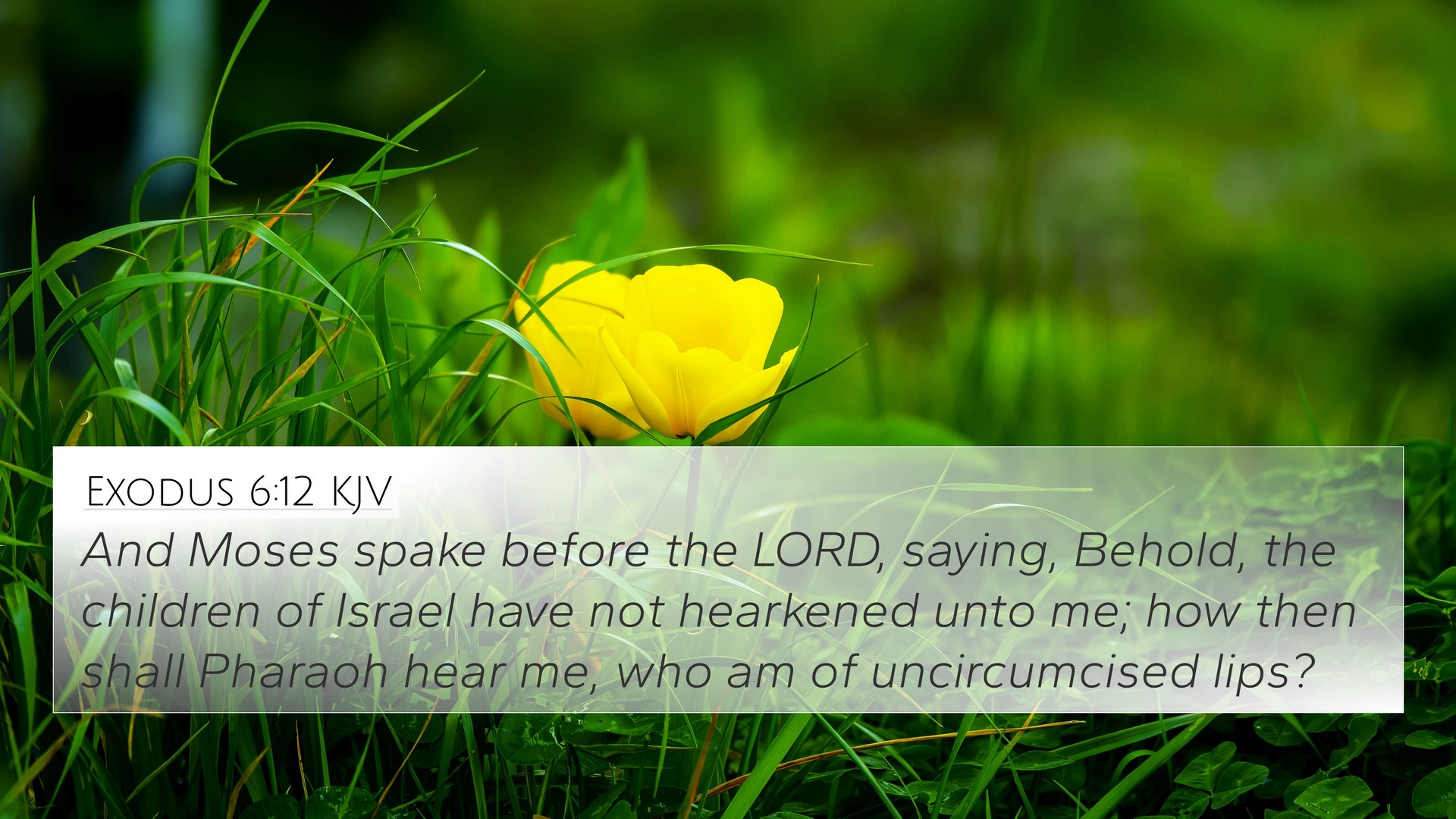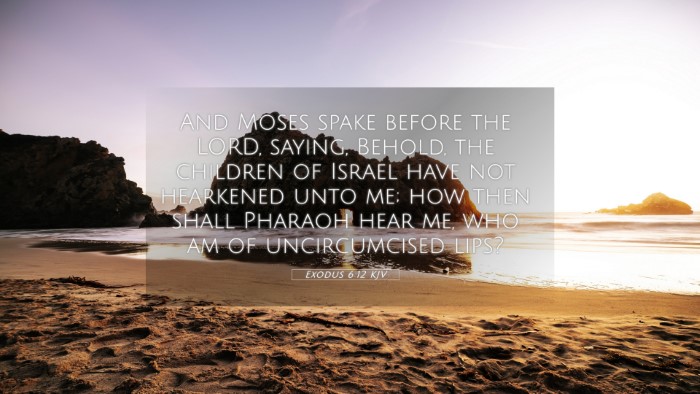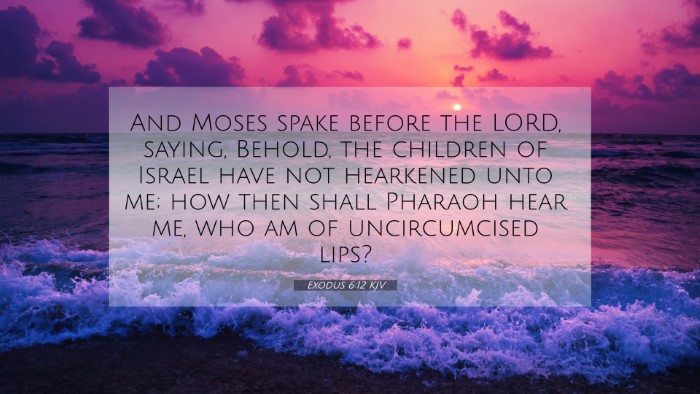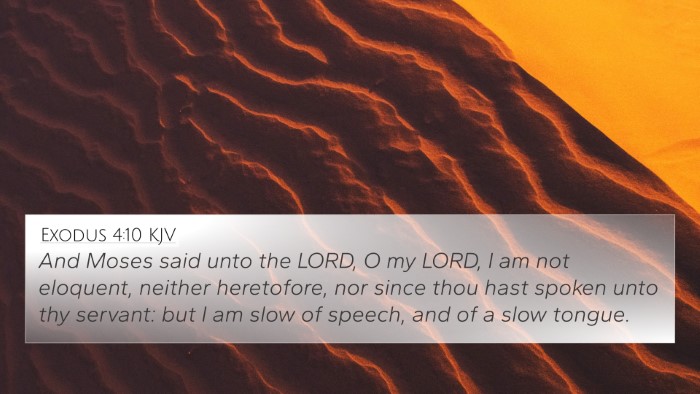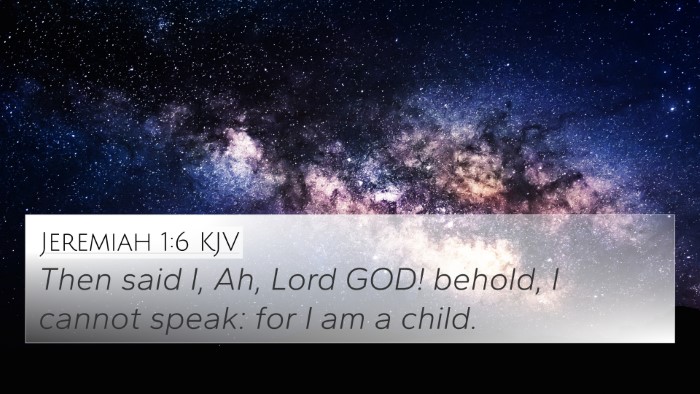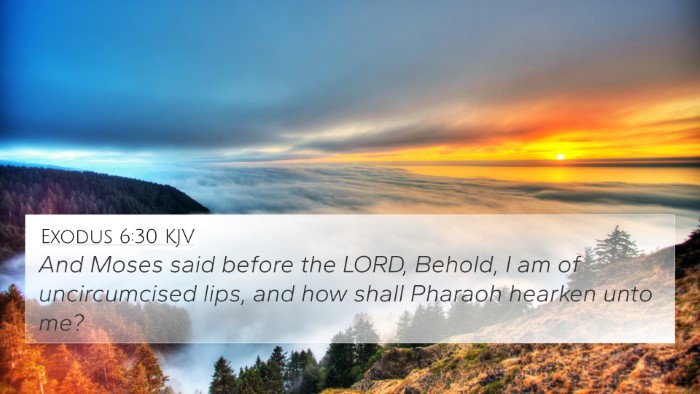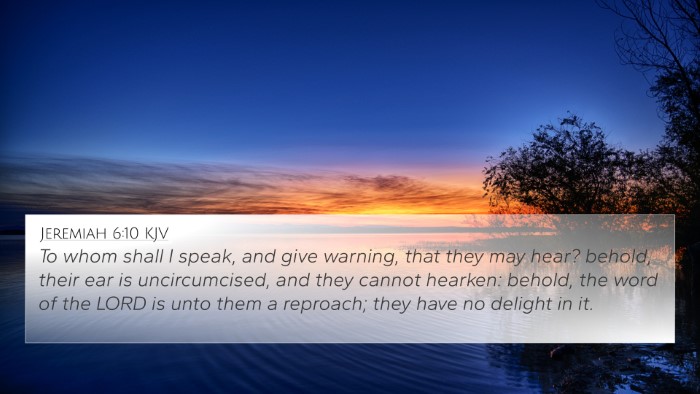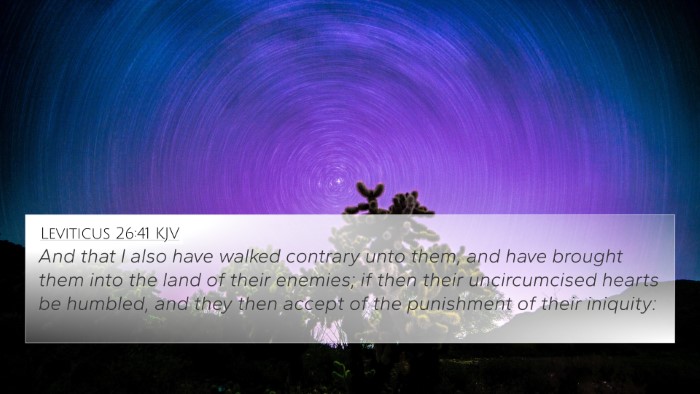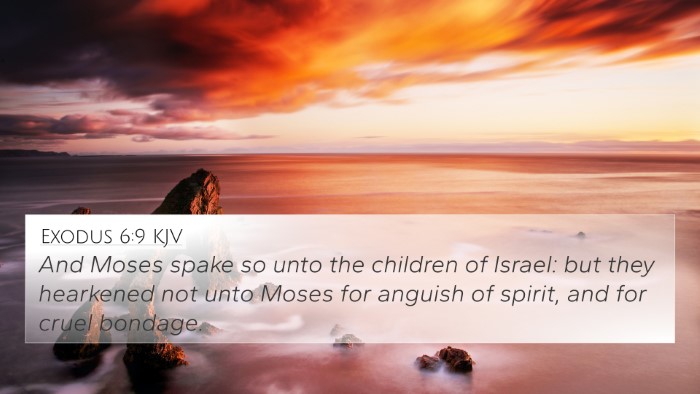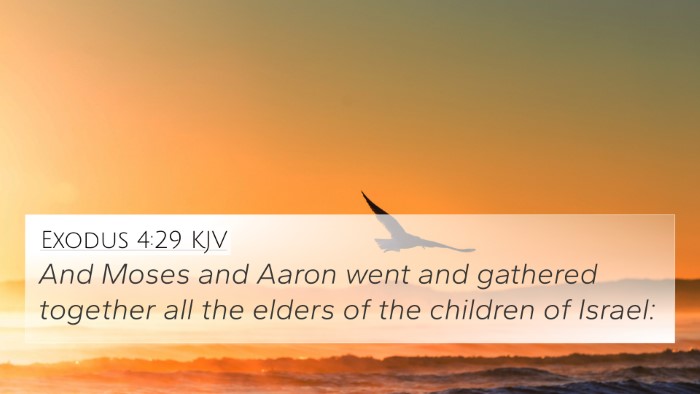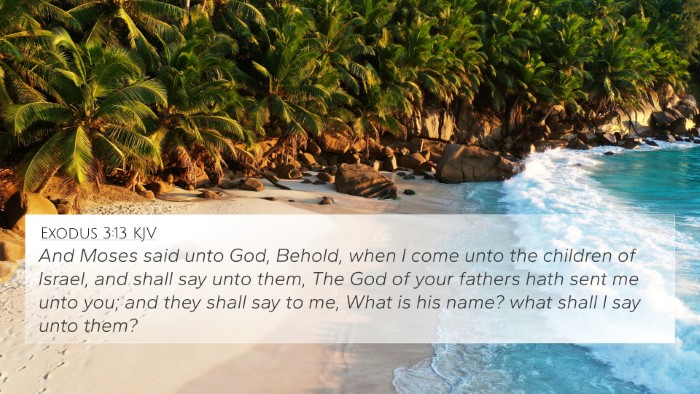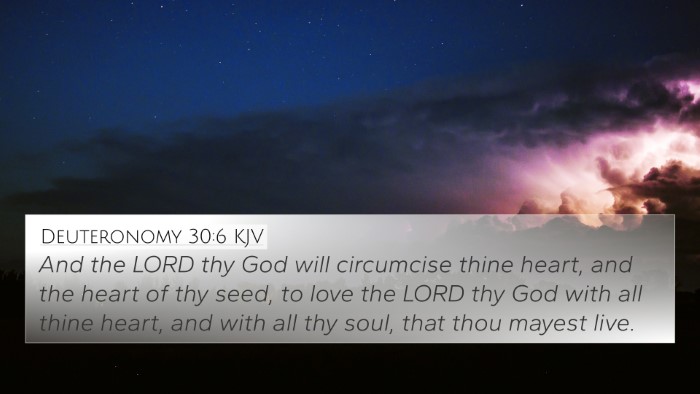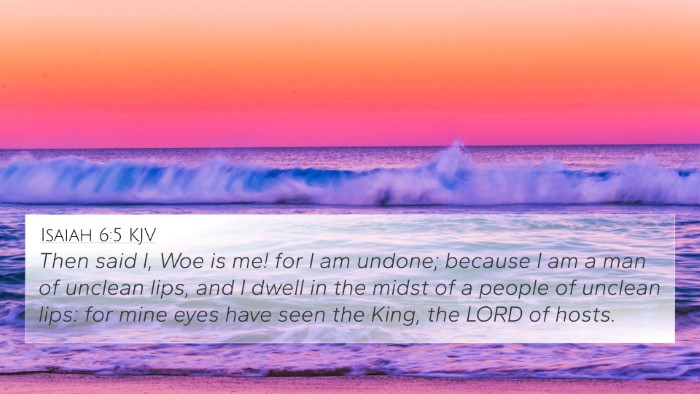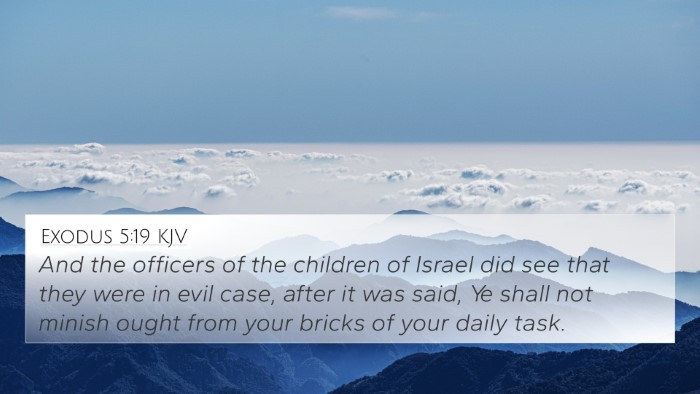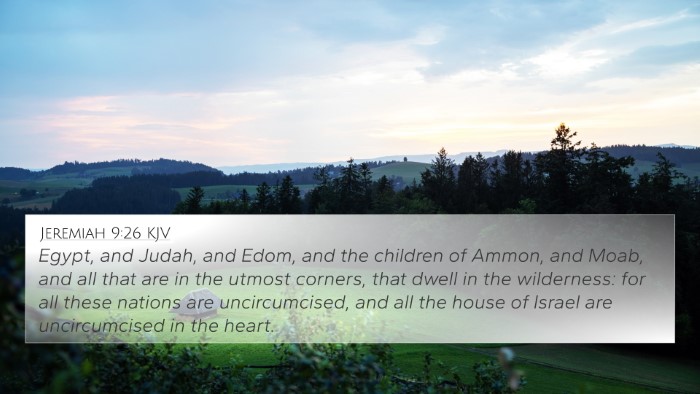Exodus 6:12 - Understanding the Verse
Exodus 6:12 states: "But Moses said before the Lord, Behold, the children of Israel have not hearkened unto me; how then shall Pharaoh hear me, who am of uncircumcised lips?" This verse captures the moment of Moses’ doubt as he addresses God regarding the mission to lead the Israelites out of Egypt.
Interpretations from Public Domain Commentaries
This verse has been analyzed extensively by various commentators who shed light on its significance within the narrative of Exodus.
Matthew Henry's Commentary
Matthew Henry emphasizes that Moses' hesitation reflects a profound concern for the mission's success given his feelings of inadequacy. He points out that Moses recognizes the gravity of the task and doubts his own ability to persuade Pharaoh, given that the Israelites had not even been responsive to him. This highlights the challenge of spiritual leadership where doubt can hinder faith.
Albert Barnes' Notes on the Bible
Albert Barnes provides insight into the socio-political contexts of Moses’s statement. He suggests that Moses understood the situation in Egypt and the resistance Pharaoh would exhibit. The term "uncircumcised lips" symbolizes a lack of preparation or ability, linking to the concept of the covenant and indicating Moses' feeling of unworthiness to speak before powerful leaders like Pharaoh.
Adam Clarke's Commentary
Adam Clarke furthers the discussion by noting that Moses’ words can reflect a common human experience of inadequacy when responding to God’s call. Clarke states that the term "uncircumcised lips" metaphorically points to a deeper spiritual and communicative deficiency, implying that Moses believed he lacked the eloquence and strength needed to fulfill the divine task.
Connecting Bible Verses
Exodus 6:12 can be connected with various Bible verses that highlight themes of divine calling, human inadequacy, and God’s empowerment. Below are some notable cross-references that illuminate these themes:
- Exodus 4:10: Moses expresses his inability to speak eloquently, emphasizing his feelings of inadequacy.
- 1 Corinthians 1:27-29: Paul discusses God choosing the foolish and weak, demonstrating that divine purpose often comes through unlikely vessels.
- Jeremiah 1:6-7: The prophet Jeremiah voices similar fears of inadequacy when called by God, reflecting a common theme in divine call narratives.
- Acts 7:22: Speaks of Moses as learned in all the wisdom of the Egyptians, illustrating that God can use our backgrounds despite our insecurities.
- Philippians 4:13: Paul states "I can do all things through Christ which strengtheneth me," emphasizing faith in God’s empowerment beyond personal limitations.
- 2 Corinthians 12:9: God’s strength is made perfect in weakness, reinforcing the idea that human frailty can enhance divine power.
- Isaiah 6:5-7: Isaiah experiences a calling similar to Moses’ hesitation, underscoring the transformative process of divine commission.
Thematic Connections
Exploring the themes encapsulated in this verse opens avenues for in-depth Bible verse analysis, thereby enriching our understanding of scripture.
Themes of Human Inadequacy and Divine Purpose
Exodus 6:12 serves as a powerful reminder of how human limitations can be intertwined with God’s plans. This theme is recurrent throughout the Bible, inviting believers to trust in God’s provision despite their perceived incapacity.
Role of Faith in Divine Missions
Furthermore, the faith shown by Moses, despite his struggles, sets a profound example for present-day believers. The narrative encourages individuals engaged in spiritual leadership to persevere even when faced with self-doubt.
Effective Tools for Cross-Referencing
Understanding biblical texts can often be enhanced through helpful tools:
- Bible Concordance: A valuable tool for locating words and themes within scripture.
- Bible Cross-Reference Guide: Helps in finding connections between verses across the Bible.
- Bible Chain References: Assist in following the thread of biblical themes from one verse to another.
Conclusion
Exodus 6:12 serves not only as a narrative of Moses' struggle but also as a profound illustration of the way God works through human frailty. By engaging in comparative Bible verse analysis and utilizing cross-referencing tools, believers can draw deeper connections across Scriptures, fostering a richer understanding of their faith.
